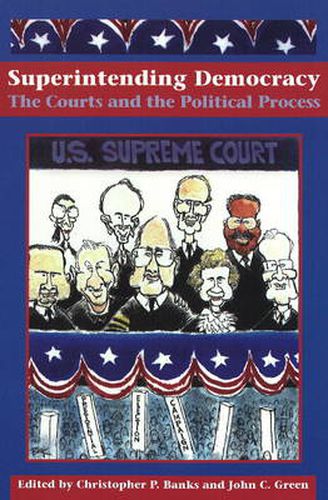Readings Newsletter
Become a Readings Member to make your shopping experience even easier.
Sign in or sign up for free!
You’re not far away from qualifying for FREE standard shipping within Australia
You’ve qualified for FREE standard shipping within Australia
The cart is loading…






The American political system is in a precarious position as the twenty-first century begins. Public confidence in government is at an all-time low and shows no immediate signs of improving. Many observers complain that the political process is unresponsive to the public interest, and all too responsive to an array of special interests. Calls for reform and renewal dominate political discourse, and yet they are regularly rebuffed in legislatures and litigation. Partly as a consequence, many citizens have become apathetic, abandoning all kinds of political participation, while others have become alienated to the point of incivility and violence. Widespread discontent grips, American democracy, even as democratic ideals triumph around the world. As the 2000 campaign for President between George W Bush and Al Gore well illustrates, the federal courts – especially the United States Supreme Court – are deeply enmeshed in this discontent. Lawyers and judges, along with politicians, are counted among those most responsible for the present failings of the political process. Thus, and because there is no clear separation between law and politics, the judiciary is at the centre of the debate over reforming and renewing American democratic institutions. This debate raises a critical question: what role do – and should – courts play in regulating the electoral process?
$9.00 standard shipping within Australia
FREE standard shipping within Australia for orders over $100.00
Express & International shipping calculated at checkout
The American political system is in a precarious position as the twenty-first century begins. Public confidence in government is at an all-time low and shows no immediate signs of improving. Many observers complain that the political process is unresponsive to the public interest, and all too responsive to an array of special interests. Calls for reform and renewal dominate political discourse, and yet they are regularly rebuffed in legislatures and litigation. Partly as a consequence, many citizens have become apathetic, abandoning all kinds of political participation, while others have become alienated to the point of incivility and violence. Widespread discontent grips, American democracy, even as democratic ideals triumph around the world. As the 2000 campaign for President between George W Bush and Al Gore well illustrates, the federal courts – especially the United States Supreme Court – are deeply enmeshed in this discontent. Lawyers and judges, along with politicians, are counted among those most responsible for the present failings of the political process. Thus, and because there is no clear separation between law and politics, the judiciary is at the centre of the debate over reforming and renewing American democratic institutions. This debate raises a critical question: what role do – and should – courts play in regulating the electoral process?